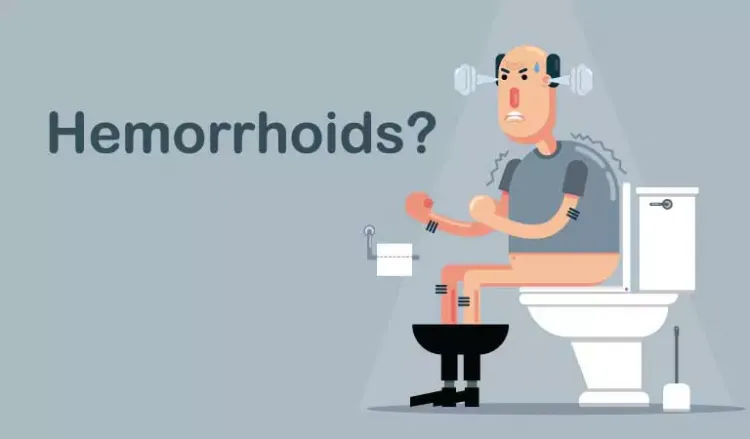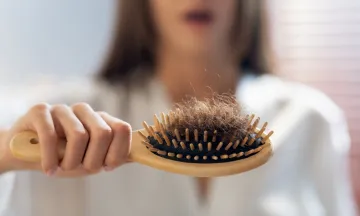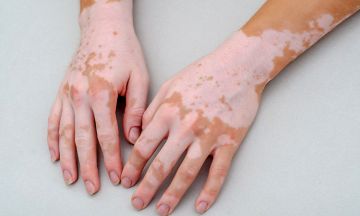Foods to eat and avoid if you are suffering from piles
The pain, discomfort, blood, and extreme itching that haemorrhoids cause are frequently, enough to drive you insane.
Did you know around 75% of the population experience haemorrhoids at some point in their lives?
According to a study published by The National Center for Biotechnology Information (NCBI), one of the most common gastrointestinal problems treated by general practitioners is piles, often known as haemorrhoids.
Fortunately, certain foods can help you relieve the symptoms of hemorrhoids.
Let’s find out the list of foods to eat and avoid, if you're suffering from piles.
What are piles?
Swollen blood vessels in the lower rectum are known as haemorrhoids or piles. When these blood vessels enlarge, the tissue above them is strained, resulting in piles. This process results in the formation of a sac-like structure that is strained further during our bowel movement, causing pain and discomfort.

Types of Piles:
- Internal Piles: It cannot be felt as it occurs in the anal canal. When the disorder progresses, the piles protrude
- External piles: The swelling can be felt around the anal canal
Internal Piles
Internal piles are located so deep within your rectum that they are rarely seen or felt. They usually don't hurt since there aren't many pain-sensing nerves there. Internal haemorrhoids have a variety of symptoms.
Blood after you wipe with toilet paper, blood in your poop, or in the toilet bowl.
Tissue that protrudes from your anal aperture (prolapse), can be painful, especially when you poop. Prolapsed haemorrhoids may appear as wet lumps that are pinker than the surrounding area.
External piles
External piles are located beneath the skin around your anus, where there are a greater number of pain-sensing nerves. External haemorrhoids can cause the symptoms: bleeding, pain, swelling and itching.
Grades of Piles
- Grade 1: These are little haemorrhoids within the anus lining.
- Grade 2: Haemorrhoids are significantly larger than grade 1 haemorrhoids and also lie within the anus. These haemorrhoids may be pushed out while passing a stool, but they will eventually return to their normal position.
- Grade 3: Also known as 'prolapsed haemorrhoids,' these are a type of haemorrhoids that have prolapsed. They appear on the outskirts of the anus, by pressing against them with fingers, the patient can force them back in.
- Grade 4: These haemorrhoids are unable to be moved back and must always remain outside the anus. They must be treated by a doctor, who will most likely recommend piles surgery.
Symptoms for piles
- Pain is the most common symptom in external piles; this can worsen the problem if you're trying to pass stools. Pain can be accompanied with burning before, during or after passing stools in some cases.
- There may also be mucous discharge with itching around the anal orifice.
- Chronic Constipation: when one is constipated, one tends to exert pressure to empty the bowels. Slowly, the pressure affects the blood vessels in and around the anus, this may lead to piles.
- Bleeding: fresh blood from the anus is one of the earliest symptoms of piles.
- Unsatisfactory Evacuation: individuals, who suffer from piles, often feel that they have not been able to evacuate their bowels completely.
What are the causes of piles?
Haemorrhoids arecaused by a variety of circumstances. The following are some of the most common causes of piles:
- Constipation or diarrhoea regularly.
- Constipation causes excessive straining during bowel movements, which is primarily a behavioral problem.
- Reduced consumption of fibre foods and fluids.
- Pregnancy causes larger veins in the rectum due to abdominal pressure.
- Poor lifestyle choices, such as eating too much spicy food or drinking too much alcohol, are examples of poor lifestyle choices.
- High blood pressure, stress, and physical effort are all linked to physical activity.
Diet for Piles
Piles can develop as a result of bowel movements that are strained. Constipation is the cause of excessive straining; a change in diet can help keep stools soft and regular.Consuming more fiber-rich meals, such as fruits and vegetables, or focusing on bran-based breakfast cereals, can help with this.
A doctor may suggest patients suffering from piles to drink more water and avoidcaffeine.
What food is good for pile?
The best food for piles is a high fibrediet;fruits, vegetables, whole grains (or fibresupplements) can reduce constipation and consequently the development of haemorrhoids.The fibre will keep your bowel motions regular, and the liquids will keep them softer so you can pass them without straining.
Whole grain breads and cereals, beans, brown rice and other grains, nuts and seeds, fresh fruits and vegetables are all high in fibre. Flax seeds are high in Omega 3 and easy to incorporate into your daily diet; nevertheless, gradually increase your dietary fibre intake.
Diarrhea, bloating, intestinal gas, and other discomforts may occur if you suddenly increase your fibre intake.
Drink lots of fluid, drinking fluids results in softer, bulkier stools. A softer stool makes it simpler to clear the intestines and relieves the pressure that straining puts on haemorrhoids. Straining is also less likely to cause haemorrhoids to protrude.
Which food to avoid in piles?
Food to avoid in piles are low in fibre and can cause or exacerbate constipation (and therefore haemorrhoids), so it's better to eat them in moderation. Avoid the foods listed below
- Refined grains
- Dairy products include milk, cheese, and other dairy products.
- Meat.
- Frozen meals and quick food are examples of processed foods.
- Spicy food.
- Deep fried food.
- High salted food such as hams, salted peanuts.
- Alcohol should also be avoided as it can contribute to small, dry stools.
Conventional treatment for piles
Conventional treatment has the potential to cause adverse effects such as not curing underlying problems, only providing brief relief from symptoms, recurrence, and invasiveness.
Painkillers, anaesthetic bands, cauterization, and surgery are all common treatments for piles. Furthermore, continuous and frequentuse is required.
Ointments, pads, creams, and medications are all available over-the-counter (OTC) for piles. Most patients with grade 4 piles are only given surgery as a treatment option.
Homeopathy treatment for piles
While conventional treatments have a high risk of recurrence, homoeopathic treatment for piles is a safe and natural option.
Homeopathic treatment for piles focuses on lowering edoema in the rectal veins while also boosting blood circulation. The homeopathy treatment goal is to minimize the severity of your symptoms in the gentlest way possible.
Homeopathy treats the underlying cause of your piles disease in order to achieve long-term improvements. It is also less likely for piles to reappear because it is non-invasive.
According to International Journal of Homeopathic Sciences (IJHS), a study was conducted on 50 patients with piles who were between the ages of 20 and 60.
The following were the outcomes of homoeopathic treatment:
- 76 % of patients saw a reduction in bleeding.
- 52% percent of individuals felt the reduction in pain.
- 82% of patients experienced a reduction in their heaviness.
- 66% percent of patients reported less itching.
If you are experiencing piles symptoms, you should see a homeopathic doctor as soon as possible
Also read Piles How and Why?
You can visit Batra’s® Healthcare for proper guidance regarding your diet and homeopathic treatment for piles
Homeopathy is known for its gentle, painless and natural treatment for long-term healing, homoeopathy focuses on treating the problem's fundamental cause, and homoeopathic treatment builds immunity and gives relief.
At Dr Batra’s® Healthcare, our homeopathic specialists evaluate your condition, family and medical history closely before providing customized Homeopathy treatment. Book an appointment now!



